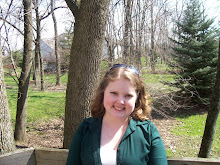Headline from today: "Indiana House prayers can't mention Christ". Apparently a judge in Indiana has bought the ICLU's argument that having prayers before House sessions by Christians that mention "Jesus" or "our God" is an establishment of religion on the part of the state that violates the establishment clause of the First Amendment. "Geezy pete!" as a character in an old sitcom would say.
If anyone would actually take the time anymore to read the First Amendment, and interpret it in the light in which it was written, they would see that this is nonsense. I didn't go to law school, but I did take two Con Law classes in college taught by a law professor, so I think I have a fair grounding on this issue. The Establishment Clause was written so that the Founding Fathers could not establish a state religion like there was in England, which their ancestors had left behind. They wanted us all to be able to worship freely, and the state was not to prohibit the free exercise of religion by its citizens. The "free exercise" clause, as it's coincidentally called, is often overlooked in Church/State cases.
The House had lay person, a rabbi, an Iman, and others also offer prayer before session. We do the same thing here in the Ohio Senate--someone different always offers the prayer that opens session. Sure, a lot of them are Christian (a lot of Ohioans--heck, a lot of Americans are Christian, so that just makes sense. But we've had a rabbi, too, and other faiths. We try to be"diverse", and it seems Indiana was trying to do the same thing. But the judge wrote that the House had "overstepped constitutional restirctions" and the prayer was an "official endorsement of the Christian religion". Was it like a campaign commercial, where at the end the Speaker said, "This prayer endorsed by the State of Indiana"?
In my view, an "establishment" of religion would be if the Governor of Indiana, or Ohio, or Kentucky, or Minnesota, got up and declared, "Today I'm issuing an executive order making (fill in the blank) the official religion of this state. If you do not practice this religion, you will have certain rights limited or revoked, etc., etc." A simple prayer to open a session doesn't qualify. It's one person's expression of belief that may be shared by others in the chamber. And why is it that if a non-Christian gives the prayer, that's not an establishment of religion? I don't see anyone up in arms if an iman gives a speech because that's "establishing religion". Sigh. Just more lunacy from the Loony Left. No wonder people are scared to say "Merry Christmas!"
Subscribe to:
Post Comments (Atom)



2 comments:
Poor persecuted Christians.
But, really, if you want to use the Cliffs' Notes version of First Amendment interpretation, why even argue that the First Amendment prohibits state establishment of religion? The First Amendment says *Congress* shall pass no *law*. So, if it doesn't involve a Congressional law, why not conclude that the First Amendment does not apply?
If the Indiana General Assembly passes a law that outlaws Presbyterianism, wouldn't that comply with a strict reading of the First Amendment? It's not Congress, and it's not establishing a religion, it's prohibiting one.
My point being, that if you agree that the Indiana General Assembly is prohibited by the First Amendment from outlawing Presbyterianism, you have to conclude that there is more to the First Amendment than is readily apparent from the plain text. To determine what is and is not prohibited by the First Amendment, a judge is required to refer to pass case law, particularly that decided by the United States Supreme Court. That is what the judge in this case did. Had he done otherwise, he would have been engaging in that dreaded judicial activism.
There is government speech and there is private speech. This is a critical distinction. The Speaker of the House of Representatives conceded in the legal proceedings that prayers from the Speaker's podium constitute government speech. Because access to the podium is controlled by the Speaker and is not available to the public generally, these prayers are government speech. It's entirely reasonable to view the First Amendment as a limitation on government, in this case a limitation on government speech. For the government to engage in standing, clapping revival-style "sing with Jesus" prayers is inappropriate government speech. Were this private speech, there would be no problem at all.
I'm in favor of limited government, and I think the case was decided appropriately. Read the thing -- it's 60 pages, but it's very well written.
Available at:
http://www.insd.uscourts.gov/News/1-05-cv-0813%20Opinion.pdf
Thoughtful questions...my responses...
1. If the Indiana GA outlawed Presbyterianism, that would also be against the First Amendment, per the "free exercise clause"--Congress shall make no law establishing religion or prohibiting the free exercise thereof (or something like that).
2. I don't think the Indiana GA was engaging in "sing with Jesus" prayers, which, as a Catholic, I find sort of disconcerting anyway (Catholics don't do that...at least not the ones I was raised with). And the GA is certainly free to set its own rules regarding what the members feel is appropriate and inappropriate prayer.
3. You're right that there's government speech and there's private speech, but why does Christian speech become such a problem, but non-Christian speech is OK? They had Jews, Muslims, and secular people offer prayer or devotion or words before session. Yet it is only Christian speech that is barred, only Jesus or Christ that cannot be named. But Mohammed and Yahweh are OK? That doesn't seem exactly fair to me. If we're going to outlaw religious speech, fine (well, OK, not fine, but you get my meaning), but let's do it across the board.
Post a Comment